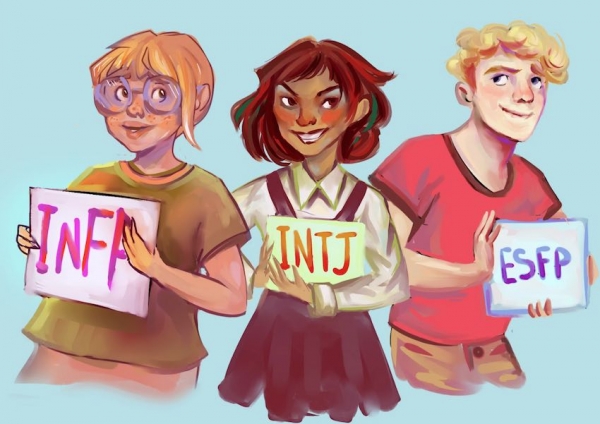“Throughout college, I was always someone who thought that who you were was a function of what you accomplished,” Merve Emre, associate professor of English at the University of Oxford and author of the book The Personality Brokers, said.
Emre, a former assistant professor at McGill, is not alone in thinking this. Her new book tells the story of the mother-daughter duo Katharine Cook Briggs and Isabel Briggs Myers, and revolutionized the tendency to quantify a person’s value as a function of their productivity. Personality testing rose in popularity in twentieth-century America as the perfect tool to categorize people in an increasingly-specialized, newly-industrialized society. Defining people’s identities in the context of their work had the additional benefit of motivating them to work harder for the illusion of self-fulfillment. Unaccredited psychological associations manufactured test after test, and people were assessed, measured, and hired or fired based on their results.
The Myers-Briggs Type Indicator (MBTI) stood out from other tests since there were no wrong answers to the assessment; the different results simply indicated different types of people who could use their skills in unique ways. The creation of a user-friendly test that asked everyday questions such as, “Are you generally: (a) a ‘good mixer;’ or (b) rather reserved in company?” transformed the Indicator into a multimillion dollar industry.
“What’s so interesting to me about the language of the Type Indicator is that it doesn’t care about what you’ve accomplished, it tells you ‘here is who you are,’” Emre said. “The Indicator promises people a story about themselves [….It] offers a sort of unthreatening form of self-discovery in which all types are created equal.”
In The Personality Brokers, Emre integrates elements of the personal and political into the captivating story of the two protagonists who created the inventory. As two women with no formal psychological training, Myers and Briggs serve in stark contrast to other psychologists of the early 20th century; however, their fierce devotion to the gospel of personality revolutionized psychological assessment.
The book begins with Briggs: An intelligent and scientifically-minded mother whose dedication to homemaking was surpassed only by her obsession with Carl Jung, the Freudian disciple whose theories of analytic psychology would later form the basis of the MBTI. Her daughter, Isabel Briggs Myers, grew up under her mother’s tutelage and carried her infatuation with analytical psychology into her late 80s, working tirelessly to create a way for the public to use her mother’s Jungian teachings.
Isabel considered each of Jung’s three pairs of personality qualities: Introversion (I) and Extraversion (E), Intuition (N) and Sensing (S), Thinking (T) and Feeling (F), with an additional pair her mother had come up with: Judging (J) and Perceiving (P). The theory goes that each person favoured one trait in each pair, and the four letters would combine to form their personality ‘type,’ which corresponded to a certain way of looking at the world. Isabel started out surveying people she knew, asking questions, and noting their preferences. The scope of her investigation grew as she drove across the U.S. to survey others, obtaining data from businesses, schools, and hospitals, before finally compiling it all in the MBTI. Isabel had to fight hard to get her Indicator published and distributed, as its unscientific premise was initially rejected by multiple psychometric companies.
Although the MBTI remains controversial in academia, Isabel’s efforts were rewarded; people from Fortune 500 companies, schools, and various workplaces continue to emphatically assert that her indicator has helped them better understand themselves. For those interested in developing a more comprehensive view of their personality, variations of the Myers-Briggs assessment can be found for free online. Alternatively, it costs $50 to take the actual Myers-Briggs personality assessment.








